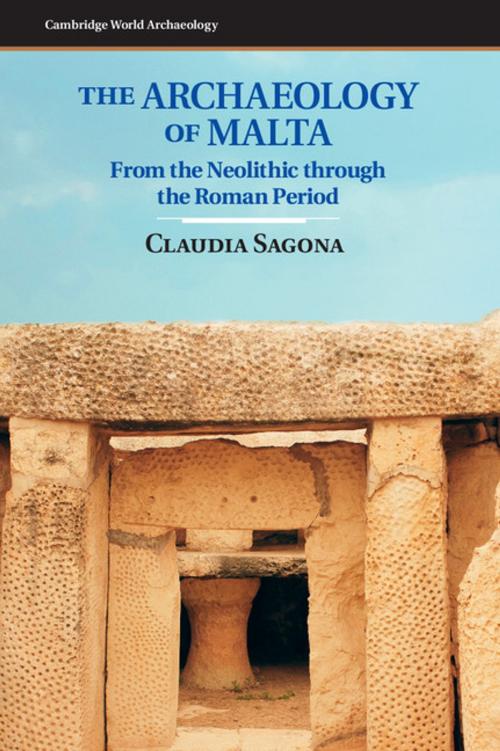The Archaeology of Malta
From the Neolithic through the Roman Period
Nonfiction, Social & Cultural Studies, Social Science, Archaeology, History, Ancient History| Author: | Claudia Sagona | ISBN: | 9781316393666 |
| Publisher: | Cambridge University Press | Publication: | August 25, 2015 |
| Imprint: | Cambridge University Press | Language: | English |
| Author: | Claudia Sagona |
| ISBN: | 9781316393666 |
| Publisher: | Cambridge University Press |
| Publication: | August 25, 2015 |
| Imprint: | Cambridge University Press |
| Language: | English |
The Maltese archipelago is a unique barometer for understanding cultural change in the central Mediterranean. Prehistoric people helped reshape the islands' economy and when Mediterranean maritime highways were being established, the islands became a significant lure to Phoenician colonists venturing from their Levantine homeland. Punic Malta also sat at the front line of regional hostilities until it fell to Rome. Preserved in this island setting are signs of people's endurance and adaptation to each new challenge. This book is the first systematic and up-to-date survey of the islands' archaeological evidence from the initial settlers to the archipelago's inclusion into the Roman world (c.5000 BC–400 AD). Claudia Sagona draws upon old and new discoveries and her analysis covers well-known sites such as the megalithic structures, as well as less familiar locations and discoveries. She interprets the archaeological record to explain changing social and political structures, intriguing ritual practices and cultural contact through several millennia.
The Maltese archipelago is a unique barometer for understanding cultural change in the central Mediterranean. Prehistoric people helped reshape the islands' economy and when Mediterranean maritime highways were being established, the islands became a significant lure to Phoenician colonists venturing from their Levantine homeland. Punic Malta also sat at the front line of regional hostilities until it fell to Rome. Preserved in this island setting are signs of people's endurance and adaptation to each new challenge. This book is the first systematic and up-to-date survey of the islands' archaeological evidence from the initial settlers to the archipelago's inclusion into the Roman world (c.5000 BC–400 AD). Claudia Sagona draws upon old and new discoveries and her analysis covers well-known sites such as the megalithic structures, as well as less familiar locations and discoveries. She interprets the archaeological record to explain changing social and political structures, intriguing ritual practices and cultural contact through several millennia.















